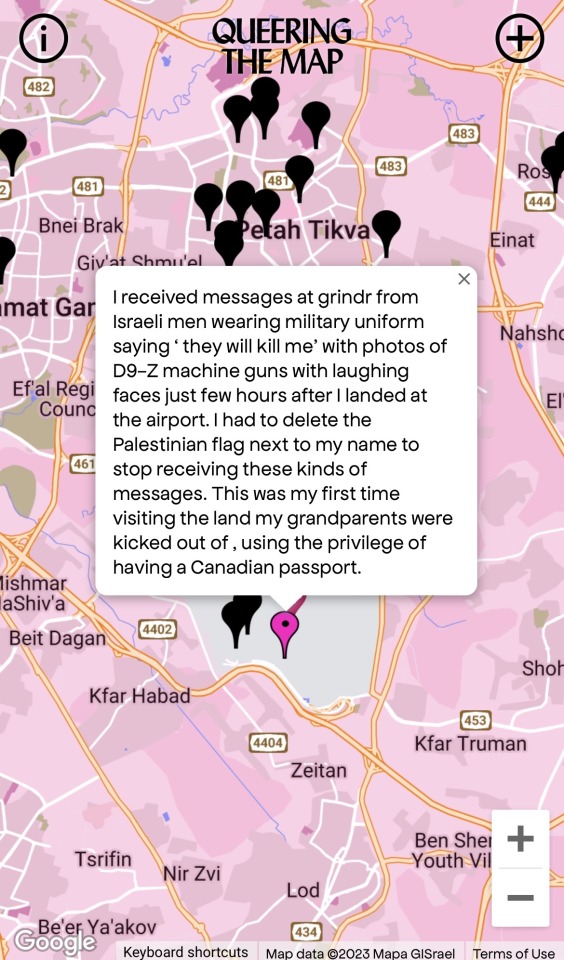Text
"does a story need to mean something" i think i know what people are trying to get at here but it is also worth reiterating that 1) stories or narratives always convey meaning, question of 'need' irrelevant 2) that meaning is not necessarily or solely determined by authorial intent and it's not a property that the story in itself possesses transcendentally but comes about also as the result of an interpretive act occurring within a given set of social relations and circumstances. the iliad probably did not mean to homer exactly what it does to me. a generative language model can't imbue its output with its own 'intent' and yet if i read that output and interpret it, i'm engaging with it in a way that creates meaning, structured by the particular narratological frameworks or schemata i've learned. a story might 'mean' something internally, and 'mean' something quite different when that internal meaning is contextualised in its social and historical circumstances. etc.
4K notes
·
View notes
Text
Why can’t the people of Sudan share what’s happening to them?
2K notes
·
View notes
Photo
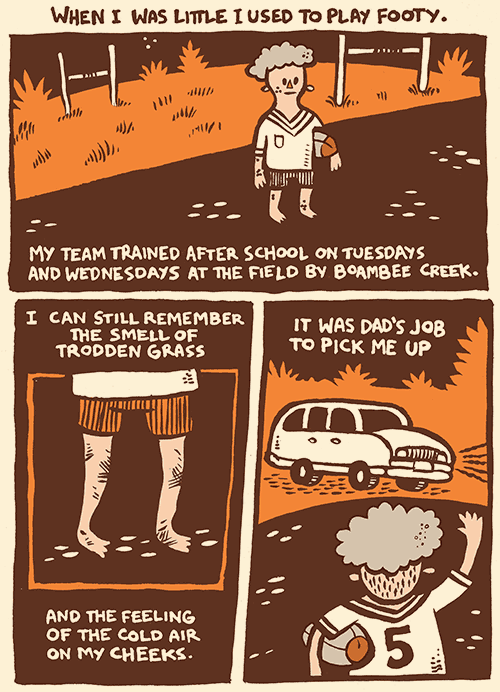
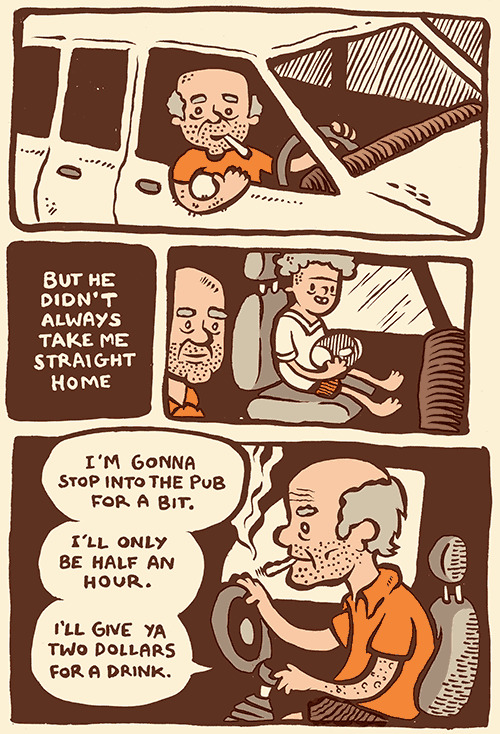
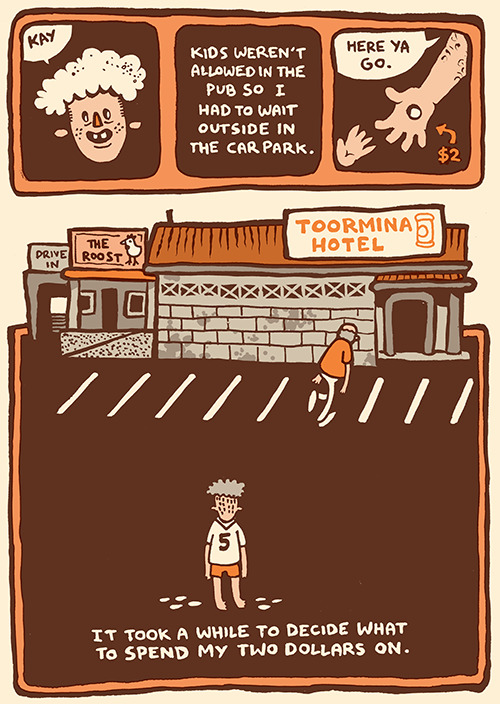

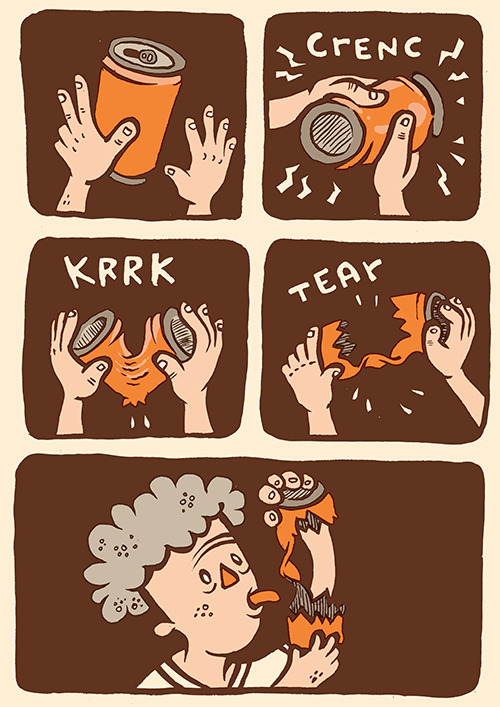
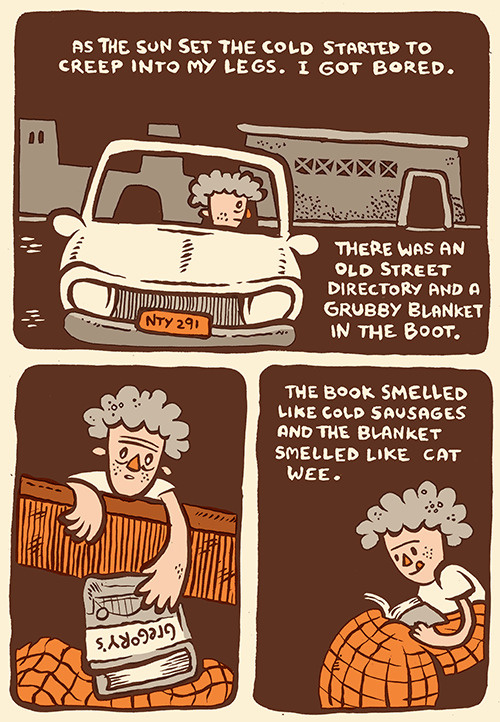

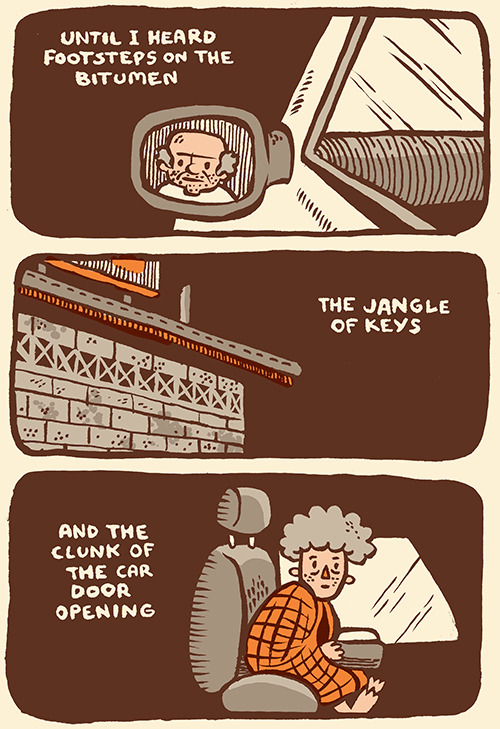
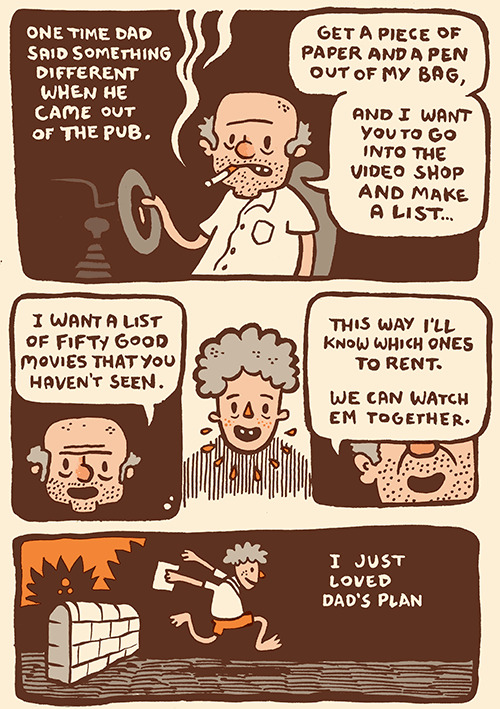

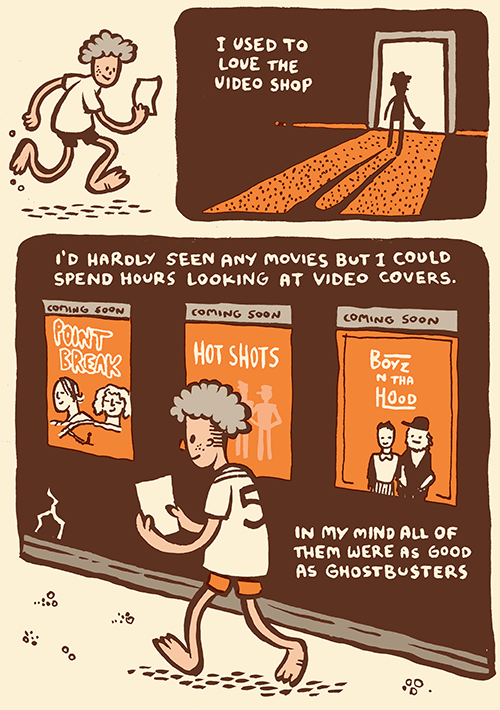

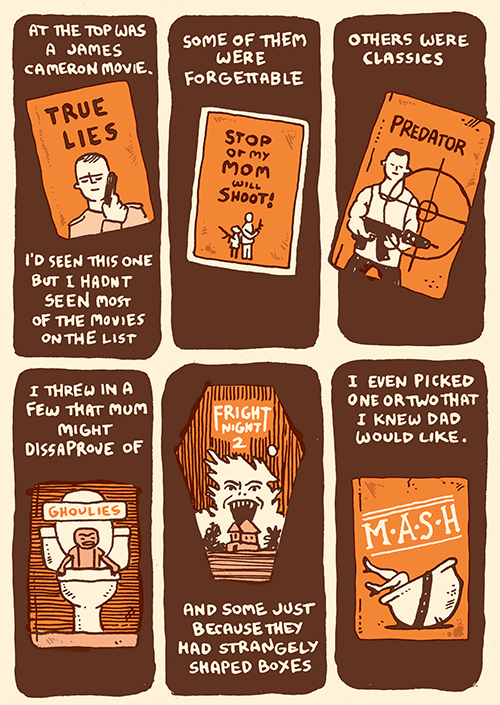
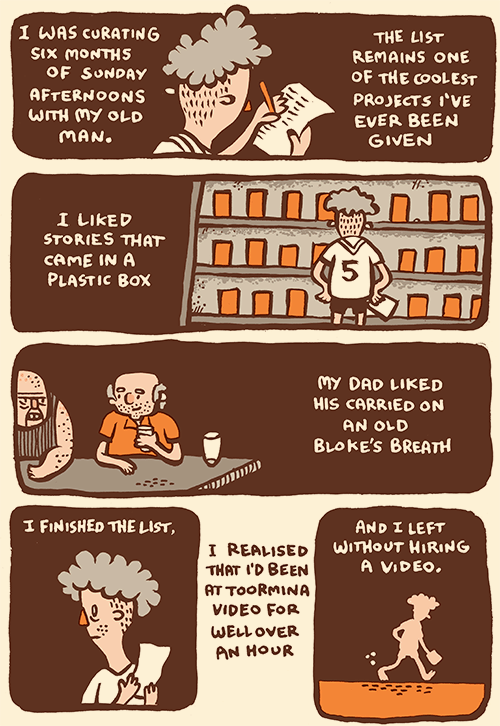
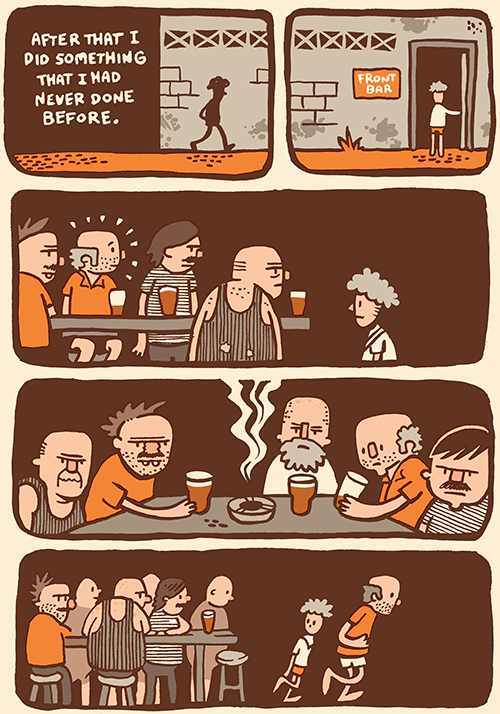
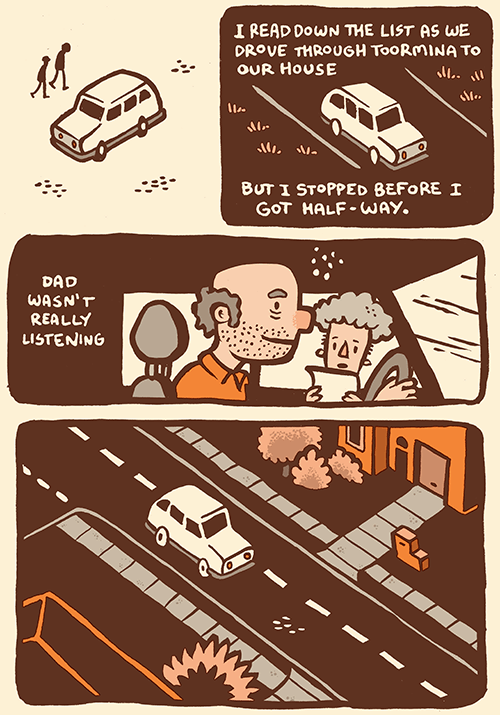
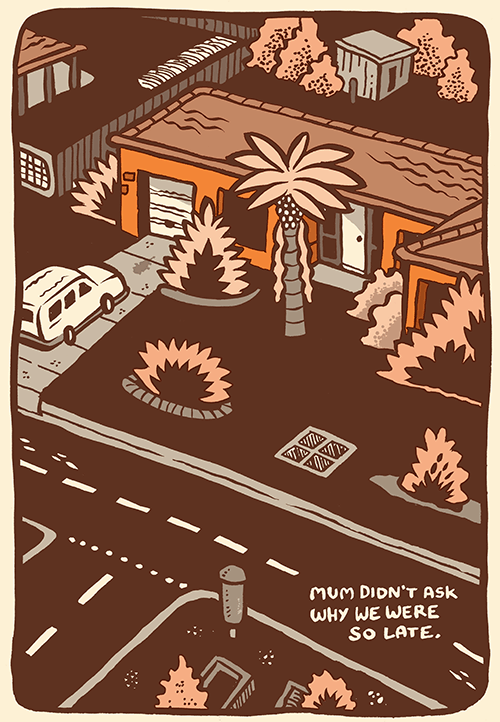




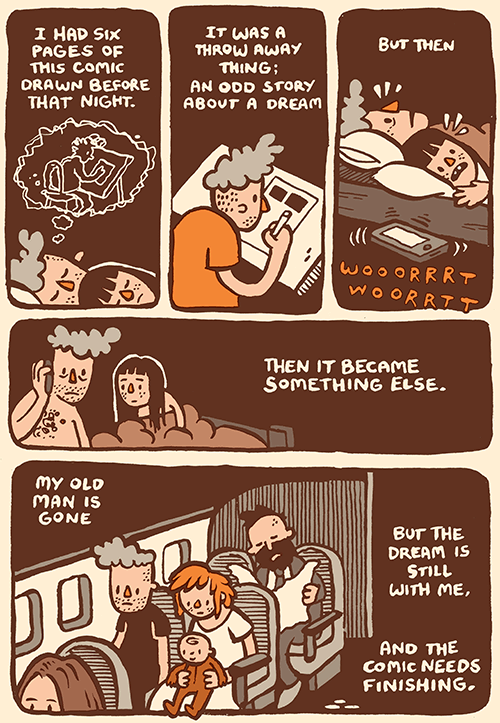
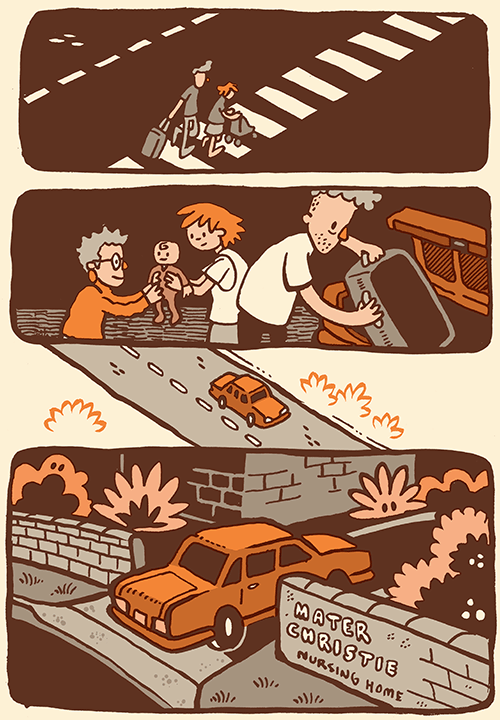

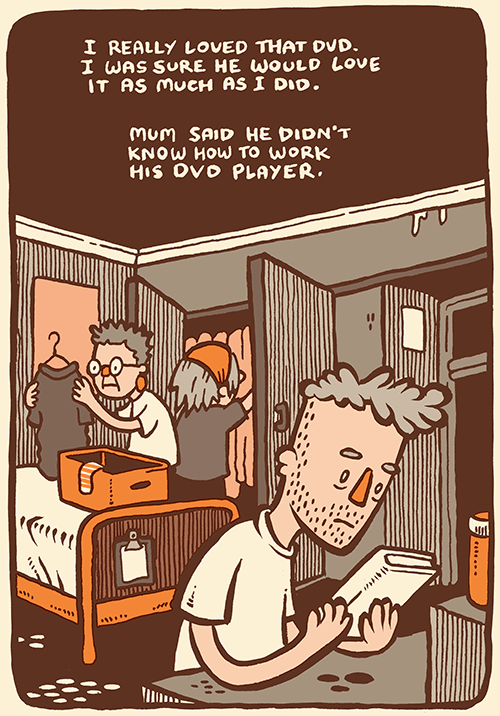
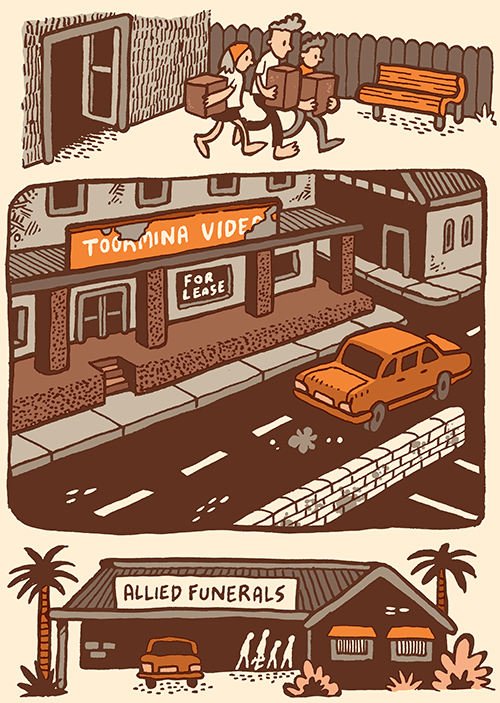
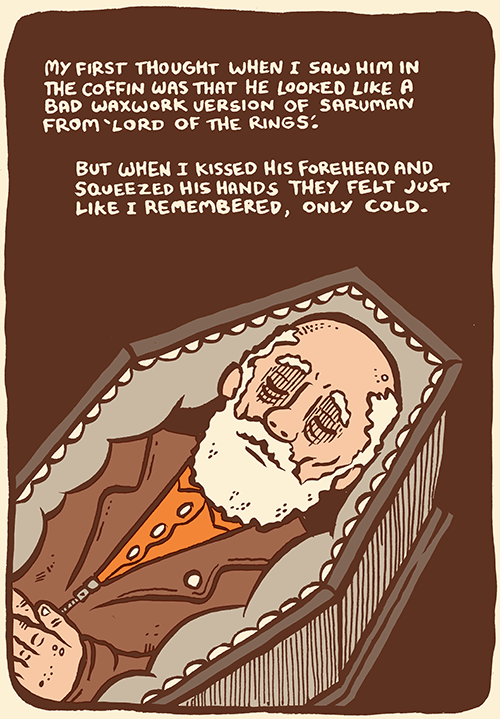
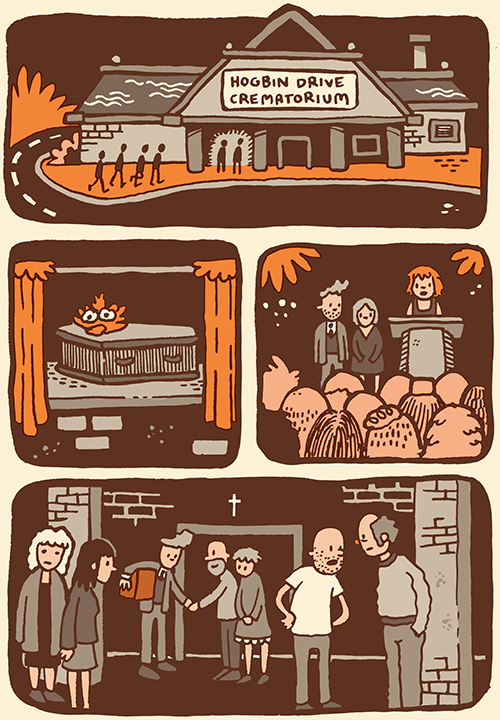
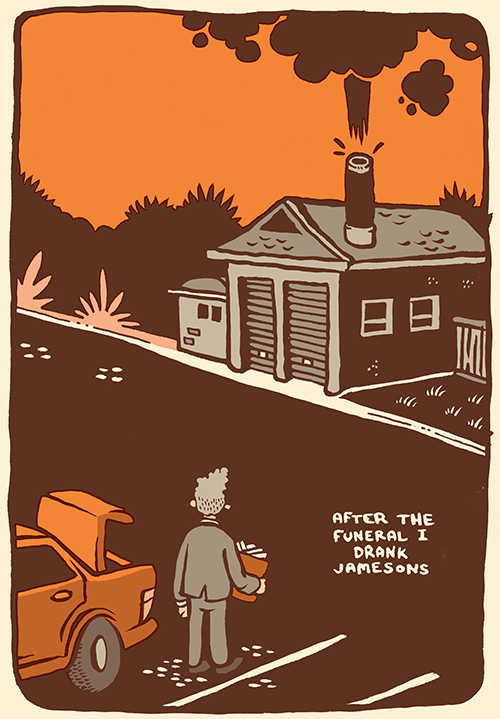

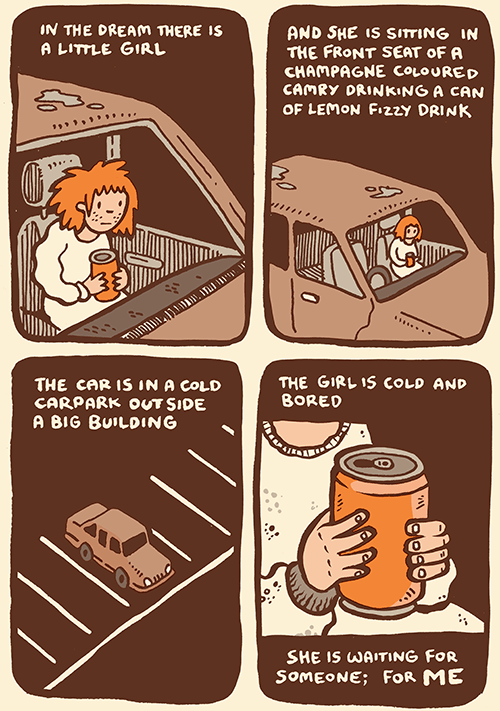
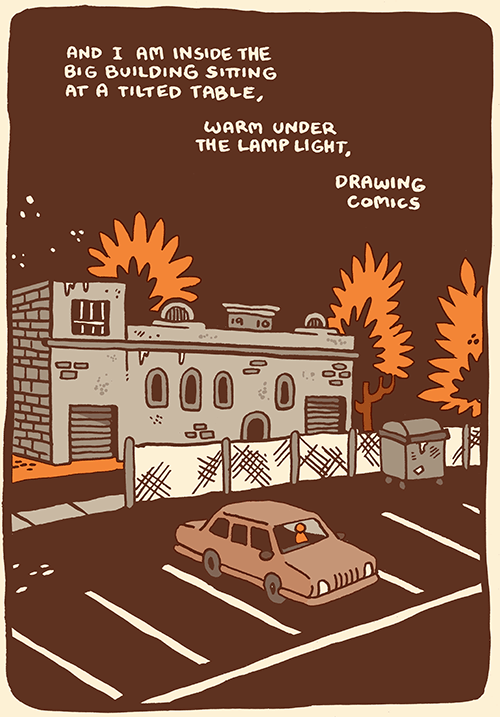

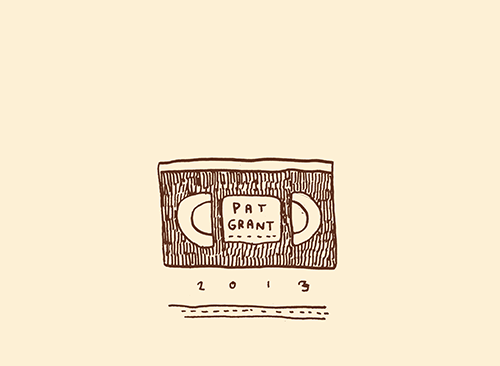
Sometimes a Son’s Greatest Fear is Becoming His Father
183K notes
·
View notes
Text
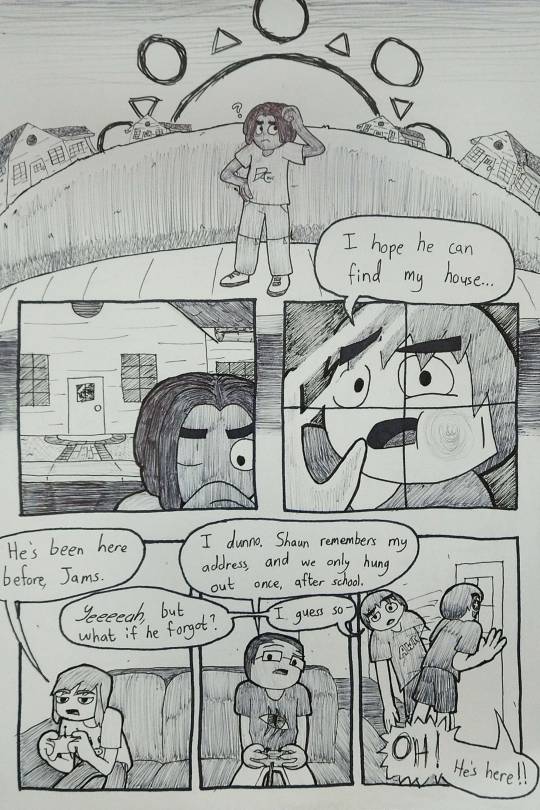
Hello vvorld!
(AD)ventures is a comedy action-adventure where I want to bring about a child's imagination into a mundane(ish) world. I want to focus on blending zany and out-there humor with more down-to-earth wordplay and fun situations.
I'll be working on it with my dear friend, Eldridge Jameson, so hopefully we'll be able to get these pages out at a regular basis! We'll try for one, maybe two pages a week, to start.
I hope you all enjoy!
- Vivian Zane
5 notes
·
View notes
Text
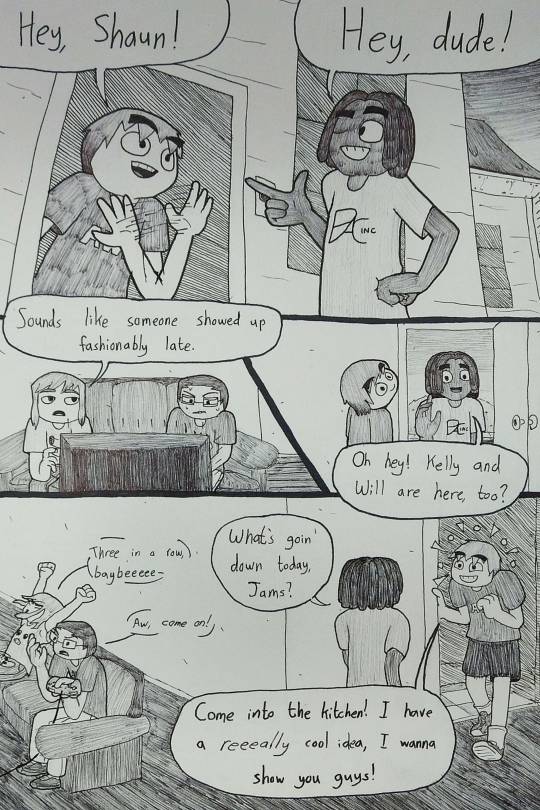
(AD)ventures - Ch. 1, p2
Hello! My name is Eldridge Jameson, and I'm working with my friend Vivian to bring this comic to life. She'll handle the writing, while I handle the art (though we may pitch in to the other's workload, from time to time).
I hope anyone who happens to catch our silly little comic on the site enjoys what they see! We'll do our best to create a goofy little story for your viewing pleasure.
Regards,
- El
5 notes
·
View notes
Note
Sorry for being dumb but I want to start submitting to literary magazines, but...how do I actually make a submission? What do I write in the email or msg? Lol sorry I'm full of Anxiety..
totally legit question that everyone has when starting out! different places are different levels of strict wrt cover letters, but here's a template i use for everything:
Dear ["editors" or editors' name(s)]
I am writing to submit [PIECE(S)' TITLES, word/poem count] to be considered for publication in [MAG NAME].
[Specify whether or not they are under simultaneous consideration elsewhere and/or previously published].
[Specify any content warnings needed for the pieces - do *not* summarize your submission, just do CWs]
Thanks in advance for your time and I look forward to hearing from you.
Warmly,
[NAME]
[Bio: (50-100 words with your name, affiliation(s), previous publications, interests, location, anything you deem relevant)]
Your cover letter should be brief, friendly, polite, and to-the-point. A few mags might request something else specific in their guidelines, and this is why you *always* read the submission guidelines and at least a few pieces from the mag before even beginning your own submission. But the above has served me well for like 8 years across a ton of different mags/sites/platforms as a base.
647 notes
·
View notes
Text

(AD)ventures - Ch. 1, p2
Hello! My name is Eldridge Jameson, and I'm working with my friend Vivian to bring this comic to life. She'll handle the writing, while I handle the art (though we may pitch in to the other's workload, from time to time).
I hope anyone who happens to catch our silly little comic on the site enjoys what they see! We'll do our best to create a goofy little story for your viewing pleasure.
Regards,
- El
5 notes
·
View notes
Text

Hello vvorld!
(AD)ventures is a comedy action-adventure where I want to bring about a child's imagination into a mundane(ish) world. I want to focus on blending zany and out-there humor with more down-to-earth wordplay and fun situations.
I'll be working on it with my dear friend, Eldridge Jameson, so hopefully we'll be able to get these pages out at a regular basis! We'll try for one, maybe two pages a week, to start.
I hope you all enjoy!
- Vivian Zane
#webcomic#traditional#first page#first chapter#ink drawing#silly#cartoon#comedy#action#adventure#my friend's art!!!
5 notes
·
View notes
Link
Chapters: 5/?
Fandom: Deltarune (Video Game)
Rating: Mature
Warnings: Creator Chose Not To Use Archive Warnings
Relationships: Kris & Susie (Deltarune), Noelle Holiday & Susie
Characters: Kris (Deltarune), Susie (Deltarune), Susie's Father (Deltarune), Noelle Holiday, Berdly (Deltarune)
Additional Tags: Alternate Universe - Canon Divergence, Neglect, Nonbinary Kris (Deltarune), Other Additional Tags to Be Added, Audio Content, Fan Soundtracks, Self-Harm, Original Character(s), Graphic Description, Slice of Life
Series: Part 1 of Who is Kris?
Summary:
In this story, someone doesn't stick with the script.
The closet to the Dark World is now simply a closet. Suddenly, Susie finds herself stuck in the Light World, with Kris being the only one in-the-know about it all. Suddenly, a friendship that felt solid now seemed uncertain. However, when the alternative is loneliness, some things cannot be hidden.
As the two stick together, she begins to wonder just how much she knows of the human, and as the days go by, someone lurks, waiting in the dark for his time.
Join me, if you please, and we can watch this unfold together.
#deltarune#who is kris act one#susie deltarune#kris deltarune#very proud of this chapter#apologies tht it took so long!
0 notes
Text
Sony Announces Animated Feature from Amphibia, Steven Universe Creators

Matt Braly, a storyboard artist from “Gravity Falls” and Sony Animation’s own “The Mitchells vs. the Machines,” makes the leap from successful showrunner to feature film director, according to a Braly tweet on Dec. 14, 2023.
The script, written with Adventure Time alum/Steven Universe creator Rebecca Sugar, references Braly’s “own cultural background and personal history,” Variety reports.
“The film tells the story of a young boy who goes on an emotional journey to a fantastical world of Thai spirits where he hopes to have his illness cured.”
Title and release date to come.
- Courtney ( @harmonicacave)
594 notes
·
View notes
Text
I tried to write a novel. Not once. Not twice. But about 12 times. Here's how that would play out:
1. I sit down and knock out 10 pages
2. I share it with someone
3. They say "It's goooood" like it's not good
4. I ask for critical feedback
5. They say, "Well....the plot just moves so quickly. So much happens in the first few pages it doesn't feel natural."
So I'd write more drafts. I'd try to stretch out the story. I would add dialogue that I tried to make interesting but thought was boring. I would try including environment and character descriptions that felt unnecessary, (why not just let people imagine what they want?)
Anyways, I gave up trying to write because in my mind, I wasn't a fiction writer. Maybe I could write a phonebook or something.
But then I made a fiction podcast, and I waited for the same feedback about the fast moving plot, but guess what???
Podcasts aren't novels. The thing that made my novels suck became one of the things that made Desert Skies work. I've received some criticism since the show started, but one thing I don't receive regular complaints about is being overly-descriptive or longwinded.
In fact, the opposite. It moves fast enough that it keeps peoples attention.
I always felt I had a knack for telling stories but spent years beating myself up because I couldn't put those stories into novel form. The problem wasn't me. The problem was the tool I was trying to use.
All that to say:
If, in your innermost parts you may know that you're a storyteller but you just can't write a book, don't give up right away. You can always do things to get better and there's a lot of good resources.
But if you do that for a while and novel writing just isn't your thing, try making a podcast, or creating a comic, or a poem, or a play, or a tv script.
You might know you're an artist but suck at painting. Try making a glass mosaic, or miniatures, or try charcoal portraits, or embroider or collage.
You might know you're a singer, but opera just isn't working out. Why not yodel?
I could keep listing out examples, but the point is this. Trust your intuitions when it comes to your creative abilities, but don't inhibit yourself by becoming dogmatic about which medium you can use to express that creativity.
Don't be afraid to try something new. Don't be afraid to make something new. You might just find the art form that fits the gift you knew you always had, and what it is might surprise you
13K notes
·
View notes
Text
if you’re white and wanna write a poc character and feel awkward about it i implore you to ignore any twitblr stuff treating it as a massive ethical burden and instead come in more with the same mindset you’d have if you wanted to write about idk firefighters but didn’t know anything about firefighters so you do... research. Like fuck off with the weird kinda creepy calls for spiritual introspection you’re not writing about god damn space aliens you’re writing about humans and if you think you need more perspective of different life experiences just read?
129K notes
·
View notes
Note
you said that you don’t take lines of questioning / thought about “romanticizing” dark topics (SA, incest, etc.) seriously. would you mind elaborating on that? what does it mean, if anything, to romanticize? i think i get why it’s a fundamentally reactionary (or just silly?) thing to be concerned about, but would you mind elaborating on why?
thanks! your posts have been very illuminating on this sort of thing.
okay so let's talk about "romanticise" as a literary discourse for a second because there are a handful of things happening with its usage:
is the assumption that there exists a state of non-'romantic' discursive matter from which something 'romantic' is being created, and the content of the text in question is the process by which that creation is happening;
is the use of 'romantic' to describe something that appears to the viewer as desirable and attractive, thus obscuring the ways in which it is harmful/abusive/violent/&c.;
is the idea that this 'romantic' state represents something morally odious due to the ideas it might impress upon the audience about the nature of the discursive matter made 'romantic' in question.
i think it's worth breaking each of these assumptions down because i don't believe that any of them actually hold water, and i find that they in fact telegraph some pretty reactionary paradigms around literary criticism.
first is the idea that there exists discursive matter that is not "romantic," here to mean suffused with cultural narratives that render it desirable, and that the matter in question only takes on these desirable qualities after undergoing this process of "romanticisation." by this logic, the matter is in fact prediscursive; the onus of constructing a “romantic” discourse lies solely with the cultural response. when in practice, normative cultural assumptions and the media that interacts with them exist in a feedback loop relative to one another, and it surely makes more productive sense to engage with the apparently objectionable material not as an object that creates or even necessarily reifies a normative cultural standard, but that interfaces with that standard in what could potentially be any number of variant forms. this widens the scope of our response as an audience—we might well say that a depiction of XYZ was tasteless, clichéd, voyeuristic, lacked interest in the interiority of its subjects, &c. &c., just as easily as we might say that it engaged with extant cultural narratives in compelling, thoughtful, meaningful ways. we're not taking the cultural object as the didactic “creation” of a social norm—we're situating it within the norms from which it already emerged.
the second is the idea that this ‘romantic,’ aesthetically desirable construction must necessarily obscure the ways in which the subject matter is harmful (however we define ‘harmful’). i find this position v condescending, towards creator and audience alike—one way of crafting horror that can be really exceptional when done right is the total sealing-off of the narrative from any didactic intervention, any suggestion that what's being depicted is morally “wrong.” the dissonance between subject matter and audience—and/or between subject matter and creator—can be brilliant when you can have faith that that dissonance exists. audiences aren't little babies who learn our morals from our media; we're prepared to critically engage with and respond to a discourse presented to us. as i said above, doing away with this whole “romantic” sheen as an obfuscator of violence opens us up to new, more precise, more compelling readings.
the third – and imo, the most damnatory – is the suggestion that the narrative itself represents a potential site of harm due to the underlying ideology that it imposes on those who engage with it. like, we're still adopting this approach whereby we construct and engage with narratives for instructive purposes; if we see a depiction of sexual abuse that renders the abuse pleasurable, aesthetically pleasing, desirable, then we absorb this idea that sexual abuse is pleasurable and aesthetically pleasing and desirable and thus covet the position of the subject in question. i don't think this is necessarily true! i'm obviously not suggesting that we don't absorb and reproduce our cultural narratives in media – as i said in the first point, there exists a feedback loop between the two – but i think we as audiences and critics ought to think more highly of ourselves than to imagine that we are incapable of seeing some fucked up shit given an aesthetic gloss without asking why the aesthetic gloss is being used, how the creator is making use of perspective, how we might respond to it, etc. and i just don't think narratives ought to be instructive or didactic; nor do i think creators bear responsibility for how their work is received to the extent that they are obliged to orient their discourse towards a presumed impressionable individual for whom every action or aesthetic contrivance is a categorical imperative. this is the oldest and honestly the most boring debate in the book; the question of "moralism" in fiction has been done half to death by now, and i don't see any use in rehashing it to any significant extent. suffice it to say that the “moralist” approach is stultified and limited and intellectually dull.
note that nowhere in this did i say that there are never narratives that ought to be called into question for their depiction of X, Y, or Z; just that i think we need better, more precise language to defer to do when we do so. simply put, i think it's possible to make a piece of art that holds these “romantic” qualities, and doesn't have a guy walk in midway through and go “by the way, abuse is Bad/age gaps are Problematic/mental illness is Unsexy,” &c., and still greatly compel me wrt its subject matter. & that is a statement which exists in straightforward contradiction to the idea that the term “romanticise” communicates anything necessarily and inherently condemnatory about a text, so, i don't use it.
676 notes
·
View notes
Text
"Every single empire in its official discourse has said that it is not like all the others, that its circumstances are special, that it has a mission to enlighten, civilize, bring order and democracy, and that it uses force only as a last resort. And, sadder still, there always is a chorus of willing intellectuals to say calming words about benign or altruistic empires, as if one shouldn't trust the evidence of one's eyes watching the destruction and the misery and death brought by the latest mission civilizatrice."
Edward W. Said, Orientalism.
18K notes
·
View notes


